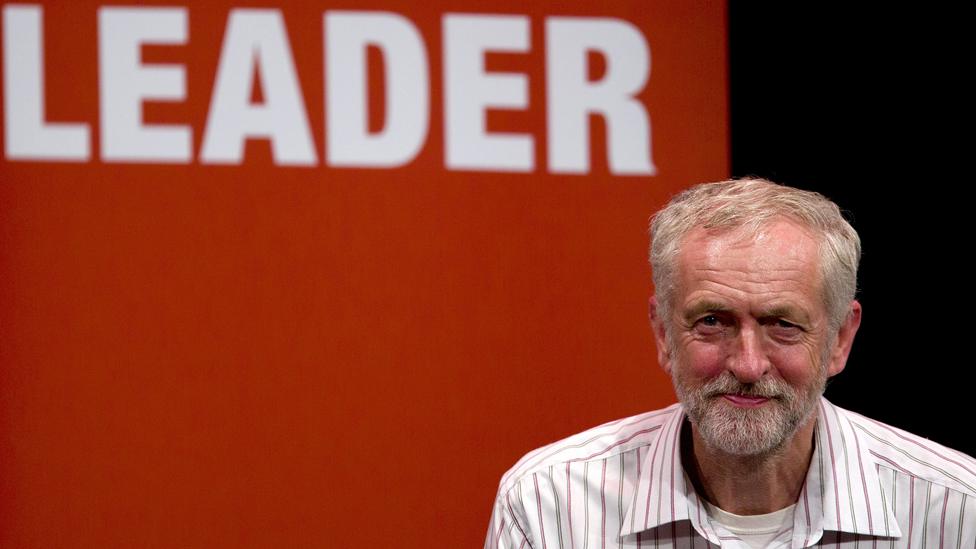Jeremy Corbyn: What the media say about Labour's new leader
- Published
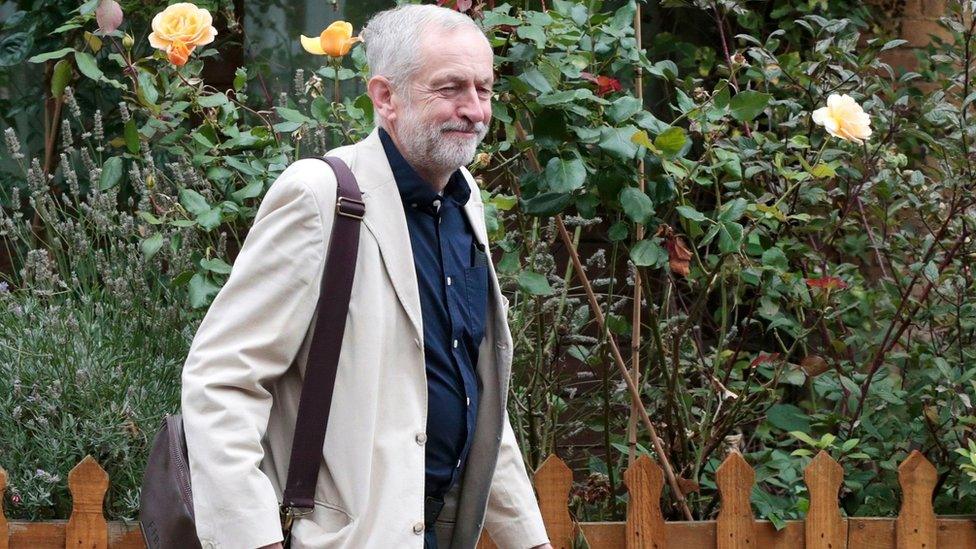
The appointment of Jeremy Corbyn as Labour's new leader has generated plenty of headlines and column inches since he was elected to the job on Saturday.
Many journalists and commentators have been filling newspapers, magazines and web pages with their assessment of just what this means for the party.
So here is a round-up of some of the media's reaction to the former backbencher's propulsion into the limelight.

Two roads for Labour
Janet Daley, writing in the Telegraph,, external says Mr Corbyn's election victory was "not a good result for the Left".
"The best possible outcome for the Corbynistas would have been for their man to have been defeated by a small margin. Then he could have become the Great Lost Leader, the martyred saint who might have led his people to their true destination had he not been cheated by a cabal of…Well, you get the picture.
"As it is, one of two things will happen. Either the Parliamentary Labour Party will go momentarily quiescent while it regroups, refusing co-operation and advice to the leadership clique.
"Or else the Corbyn crew will be brought down within months by a Labour assassination squad. This will result in a decade of division within the party - but the hard Left will be particularly scarred by the viciousness of its fight to the death."

'Poorest and richest'
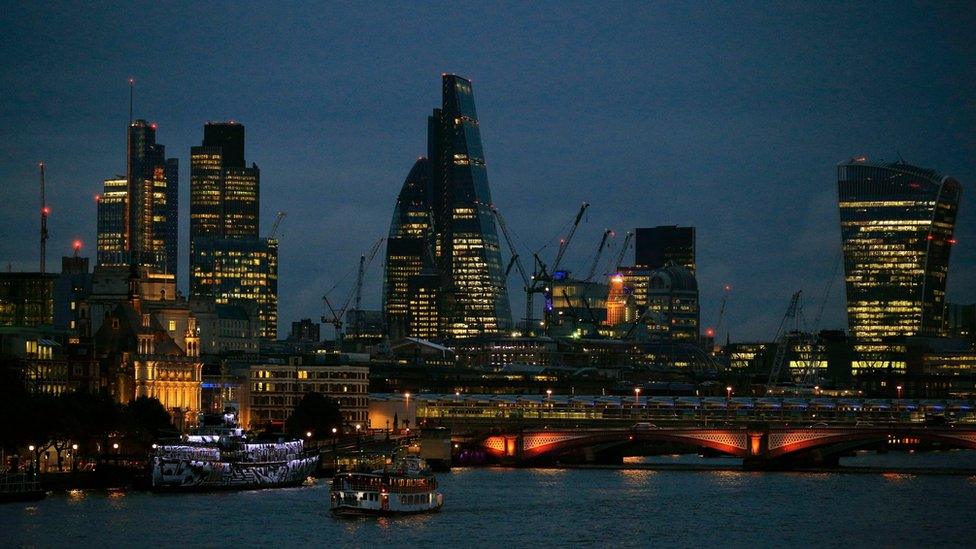
The Observer says Labour has a position on the wealthiest and least fortunate - but no-one else
The Observer says, external there is "much evidence to suggest voters will resoundingly reject Corbynism in its current form if he makes it to the next election".
"History and common sense suggest that Labour only wins when voters feel they can trust the party to run the economy and to be a guardian of public spending.
"New polling published by Lord Ashcroft last week reinforces what poll after poll has suggested since the May election: voters deserted Labour for the Conservatives in 2015 because they had serious doubts about Ed Miliband and they feared a Labour government would spend and borrow too much.
"Labour has a message for the poorest, and the richest, but nothing to say to the rest of the country."

Shaking up British politics
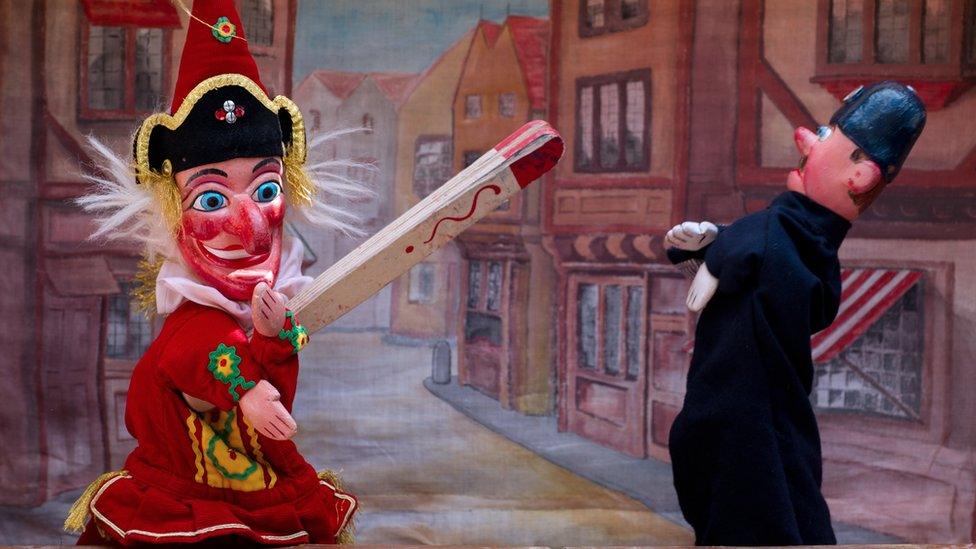
Will Jeremy Corbyn bring an end to the 'Punch and Judy' aspects of the Commons?
The Independent says, external Jeremy Corbyn's win "shows there is an appetite for change in British politics".
"He has interesting ideas for changing the way Parliament does its business. He has suggested that other members of the shadow cabinet should take turns asking questions of the prime minister in the House of Commons.
"He is not the first to promise a "new politics" or to want to end the Punch and Judy of Prime Minister's Questions, but perhaps he will be the first to succeed.
"It is not as if our political system is so perfect that it could not do with shaking up."

Labour shaping Tory futures?
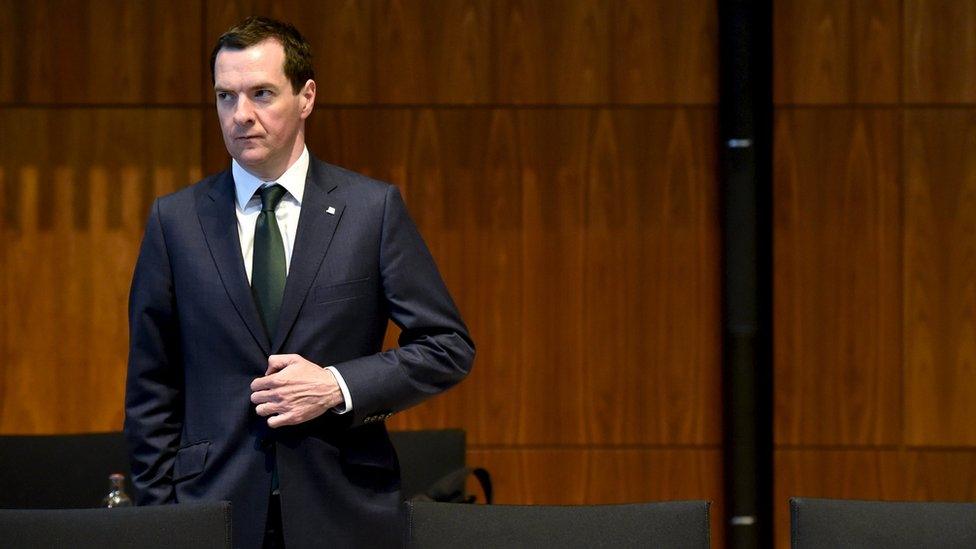
George Osborne's odds on becoming the next Tory leader are shortening fast
James Forsyth, writing in the Spectator,, external says Mr Corbyn's victory will change the dynamics of the next Tory leadership election - which he claims can be expected in about three years.
"Until recently, Boris Johnson's supporters argued that the Tories needed something extra for the party to win outright. Boris, who had won twice in a Labour city and had the appeal of a celebrity as well as a politician, appeared to be that something.
"But with Corbyn as Labour leader it appears that anyone sensible can beat Labour. It is no coincidence that in the past few weeks, the odds on George Osborne's leadership chances have been shortening almost as fast as Corbyn's.
"The chancellor is now, for the first time, the bookmakers' favourite."

Global reaction

The New York Times says, external Mr Corbyn's success "underlines the extent to which European political structures have been destabilized by the aftershocks of the financial crisis in 2008, with voters increasingly attracted away from the political center ground, either to the socialist left or the nationalist right".
There's plenty of doom and gloom from the Sydney Morning Herald, external, which says: "British Labour has now selected the wrong leader twice. First, they chose Ed Miliband over his brother David in 2010. By choosing Ed the party lurched to the left and lost the 2015 election, which the more centrist David could well have won. Now they have responded to this awful result by electing Corbyn. Expect the result in the 2020 general election to be the same as last time, if not worse."
The Hindu says, external that while Mr Corbyn did not detail any foreign policy during his campaign, "the newly elected leader of the Labour Party has, in his long career in politics, been associated with international movements for peace, against war and nuclear militarisation, and for human rights".
And Andrew Hammond, writing in the Gulf News,, external says Mr Corbyn's win "represents a political earthquake in the Westminster establishment. The aftershocks will continue for weeks to come as he seeks to move the centre of gravity of UK politics in a leftward direction".
Meanwhile, Andrew McFadyen delves into sporting history in his piece for Al Jazeera. , external"Jeremy Corbyn winning the Labour leadership is like Aberdeen beating Real Madrid in a European final. It really happened, but you have to pinch yourself to believe it is true," he says.

'Sticking to his principles'
In the New Statesman, Laurie Penny says, external the argument that Jeremy Corbyn is unelectable is being made by "three candidates who can't even win an election against Jeremy Corbyn.
"Their arguments are backed by two former prime ministers: Gordon Brown, whose main claim to fame is losing an election to the Tories in 2010, and Tony Blair, the Ghost of Bad Decisions Past.
"Corbyn, however, has been re-elected by the people of Islington North consistently since 1983 and, like Bernie Sanders in the US, seems as surprised as anyone to suddenly be reaping the rewards of a lifetime of sticking to his principles - principles that once put Corbyn on the moderate left of Labour and now make him look, at least in the estimation of much of the press, like the nightmare offspring of Che Guevara and Emma Goldman dressed up in a Stalin costume.
"And all for proposing a modest increase in the top rate of income tax."

Corbyn's win 'changes Britain'
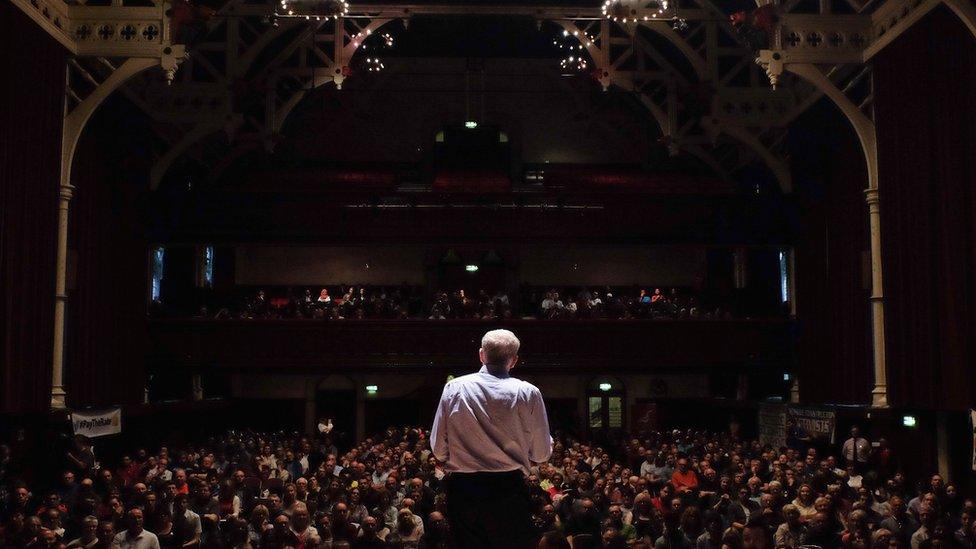
Mr Corbyn drew large crowds during his leadership campaign
Jeremy Corbyn's "triumph", says the Morning Star,, external is cause for celebration "for everyone who fights for a better world".
"Corbyn's mandate to lead the Labour Party is unshakeable.
"And the enthusiasm he inspires wherever he goes — packing out halls at rallies in every corner of Britain over the past few months — shows that he is far and away the most popular politician in Britain today.
"His win is a tremendous step forward for the party and the movement. In itself, it changes Britain for the better.
"It means the government will not be able to pursue its attacks on our public services, rights at work and living standards without encountering principled opposition on every front."

Lessons from history
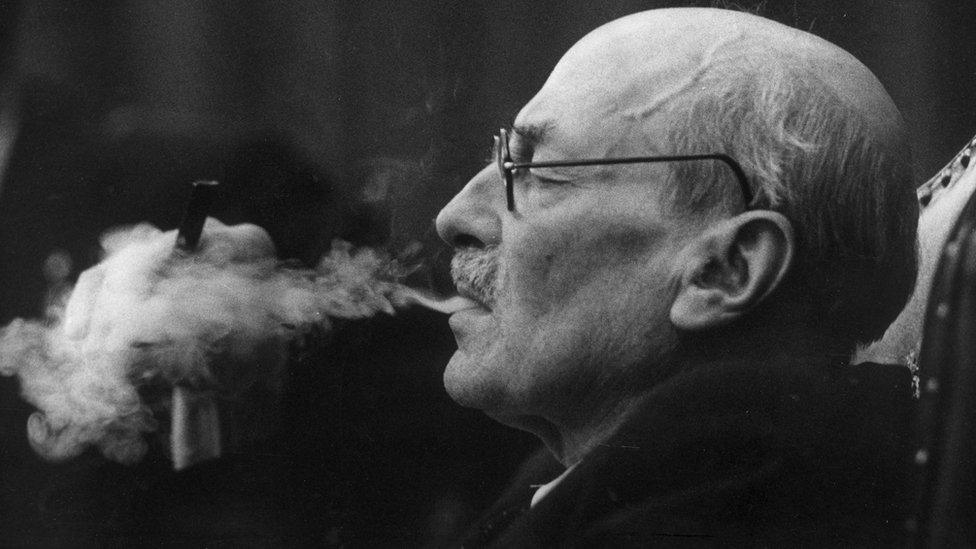
Clement Atlee - a role model for Jeremy Corbyn?
Gordon Brown's former aide Damian McBride writes in the Mail on Sunday , externalthat Jeremy Corbyn, MP for Islington North, may be the "best thing since Clement Attlee".
"The last Labour leader to represent an inner London seat, indeed the last leader of any major party to do so, was in his 60s by the time he became Prime Minister. He was unfashionable, disdainful of the media and he stood on a platform that promoted peace and investment in public services and housing, even with the country facing massive debts.
"Clement Attlee went on to be Labour's greatest Prime Minister. And while few may believe that Jeremy Corbyn can follow in his footsteps as he slips into the leader's shoes today, one thing is for sure: He comes from the right place."

Danger of Labour's 'slide into history'
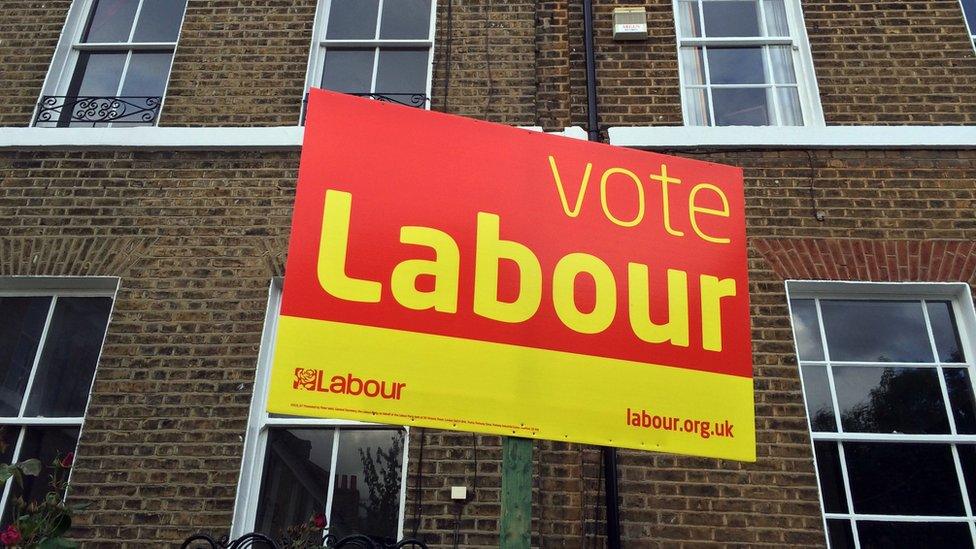
Peter Mandelson has concerns over the future of the Labour party
Labour grandee Peter Mandelson writes in the Sunday Times, external that there may not be an "immediate, dramatic collapse" of support following Mr Corbyn's appointment.
"Many voters may even be attracted initially by Corbyn's populism and anti-Establishment pitch. But that is not the same as deciding he should be Britain's next prime minister.
"The danger is that Labour simply decides to muddle through, resigning ourselves to our fate rather than doing anything big enough to alter it. Miliband's failed '35% strategy' would seem ambitious in comparison and we would quietly slide into history."

Elementary role for Watson?
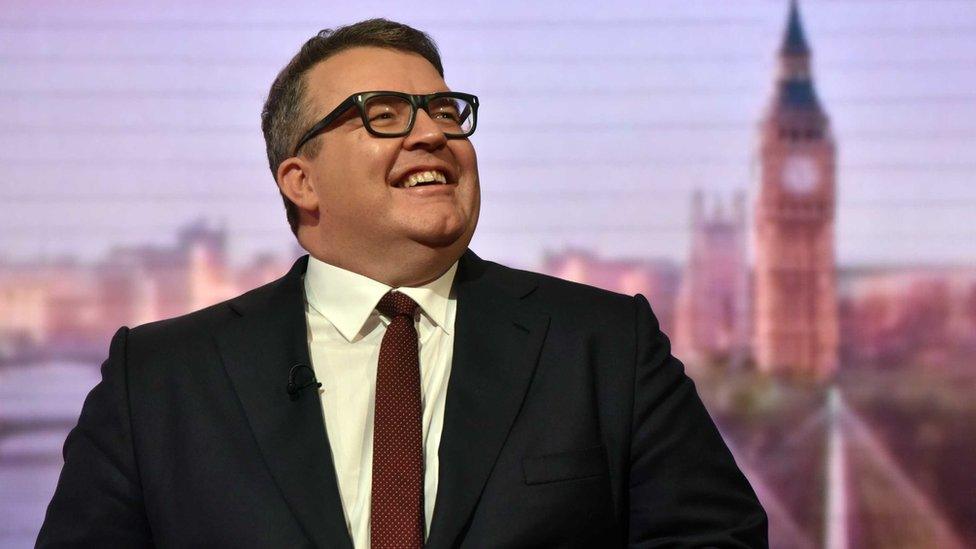
Tom Watson's role as deputy Labour leader will prove to be vital in shaping the party's future
Professor Charles Lees, who is professor of politics at the University of Bath, writes in the Huffington Post, external that the most intriguing aspect of the Labour leadership outcome is how the new deputy Tom Watson play his role.
"Watson is a party insider insider and - many would argue - a bit of a political thug. He has the power to either make Corbyn's task harder than it needs to be or to bring the party machine behind him in the name of unity.
"And if, in a few years time, it is clear that Corbyn is leading Labour to disaster, I wonder what role Watson will play as Corbyn's opponents try to remember where they buried the political hatchets?"

New leader's ideas 'cartoonish'
The Sun on Sunday's leader comment, external says Mr Corbyn's appointment is "hard to believe".
"Yet his blunt Marxism appeals to Leftie voters sick of appealing to the 'centre'. His cartoonish policies seem new to the young and naive only because they weren't born the last time anyone was foolish enough to spout them.
"His policies would be catastrophic: leaving Nato, printing money and causing rampant inflation, downgrading our forces to a home guard, re-opening mines and so on.
"He began yesterday as he means to go on, with deranged attacks on the media, whom the Left always blame for their election defeats."

'Wow' factor reviving Labour
Kevin Maguire has an enthusiastic piece in the Mirror,, external saying Mr Corbyn's win was "sensational, stunning, seismic, stupendous - pick any superlative you like".
"Jez he Did. Easily. With a thumping majority on the first round. The result wasn't even close. Corbyn walked it. Wow!
"Corbyn's message of hope and optimism energised and excited Labour, reviving the party by dragging it from its knees after a crushing election defeat.
"Now its most Left-wing leader in recent times deserves his chance to succeed."
- Published13 September 2015
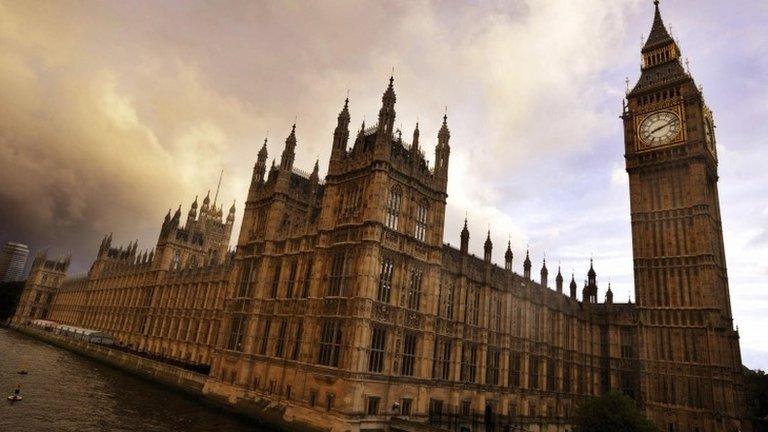
- Published13 September 2015
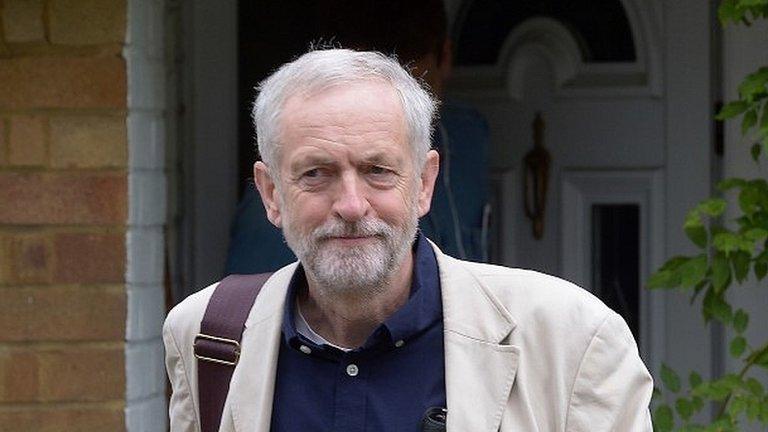
- Published13 September 2015
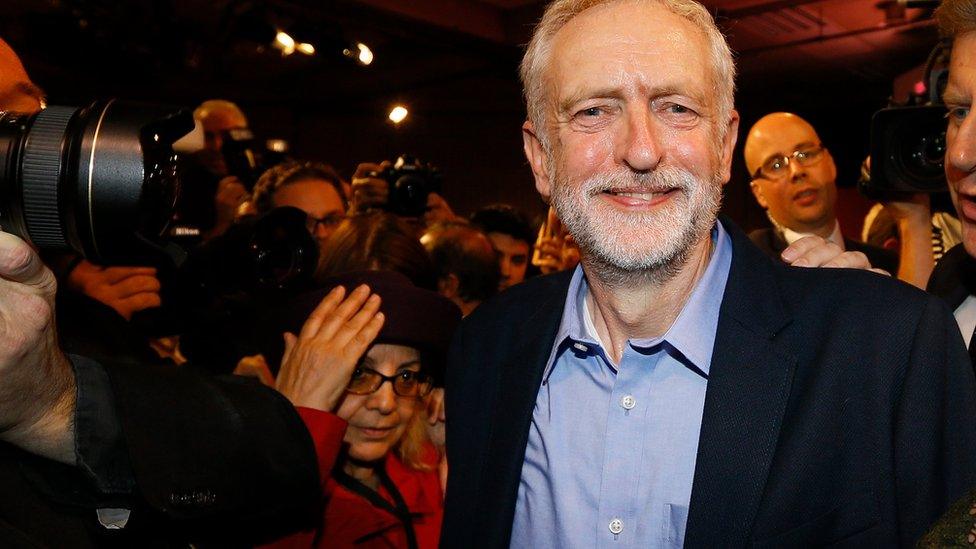
- Published13 September 2015
